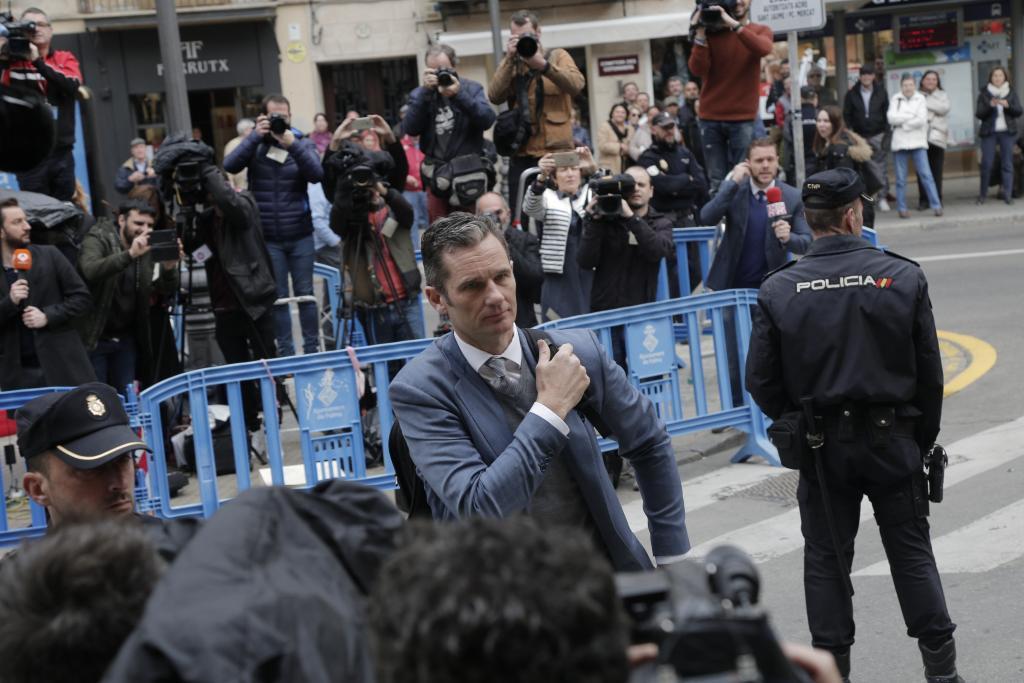Pedro Horrach, the anti-corrpution prosecutor who had headed the prosecution case against Urdangarin and others, reacted to the court's decision by saying that it seemed "correct" in procedural terms. He added, though, that not everyone would share that view, and not everyone did. Local politicians were surprisingly quiet, with the exception of Més, which accused the court of having shown "favourable treatment". One of its spokespeople, David Abril, observed that it was "not normal" for someone handed a sentence of this length to evade prison for the time being (pending appeal).
Horrach spoke about the case and his own position. His independence had been questioned because he didn't press a state case against the princess. He said, however, that no pressure had been exerted upon him by his superiors. Had there been, he wouldn't have accepted it. He did, though, acknowledge pressures from elsewhere. Being followed, receiving insults. Other prosecutors in the anti-corruption, he added, have been intimidated. As has been reported apropos the investigation into police and political corruption in Palma, the prosecutor in that case (and the investigating judge) were given permission to carry guns.
Majorca going on strike
Everyone seemed to be planning on going on strike. The taxi drivers, still at loggerheads with the government over the tourist resort bus services, announced a 24-hour strike on 6 March as well as other stoppages, some of which will be during Holy Week. Workers at the SFM rail company said that they will hold a 24-hour strike on the same day, while dockworkers, as part of a national protest against legislation that will reform their monopolies in state ports, announced that 6 March will be the first day when they walk out. Palma's port will naturally be affected by this action, and Majorca will be affected, given the island's reliance on supplies brought in by sea.
Too many flights
The airports authority Aena raised the hackles of tourism minister Biel Barceló, Podemos and environmentalists GOB when it said that the number of flights per hour at Palma will increase from 66 to 80. This was latched onto with suggestions that the number of tourists could increase by as many as eight million, which was almost certainly an exaggeration. Nevertheless, Barceló had a point when he said that this increase will have an impact on services, resources and roads. Saturation was returning as a theme, and the season has yet to start.
Aena didn't perhaps help itself by also posting its figures for last year: profit rose by almost 40%.
The airport's name
Aena, it was said, will not be required to pay the some half a million euros that it has estimated to be the cost of changing the airport's official name to Ramon Llull Palma-Mallorca International Airport. The Council of Majorca, the body which is pressing for the name change, was insisting that it should do, given how much money it makes (a good deal of which comes from Palma in the form of airport taxes).
The airports authority has, it was reported, paid in the past, but this was for the change of the name of Madrid-Barajas to include Adolfo Suárez, who led Spain through its transition to democracy. The current prime minister, Mariano Rajoy, apparently ordered Aena to pay an amount some 25,000 euros lower than the estimated cost for Palma's name change.
As far as you were concerned, there was a universal thumbs-down for what was considered to be a complete waste of money.


1 comment
To be able to write a comment, you have to be registered and logged in
Just had comparison look with Gatwick. Gatwick already handles around 40 million people per year and over 267000 movements on one runway in 2015. Palma handled around 26 Million on 197500 approx. in 2015. So If Gatwick can handle all this traffic on just one runway, I feel if Palma with 2 runways, got their act together, they should handle more flights.